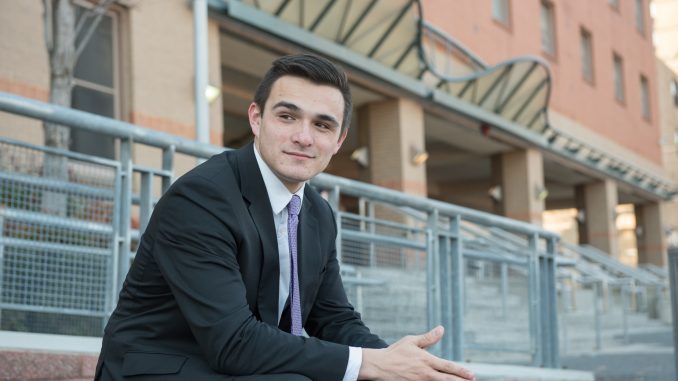
Freshman neuroscience major Kat, who declined to give her last name because of the stigma surrounding addiction, was part of Drexel University’s recovery housing before she transferred to Temple.
“If there is a presence of sober students living in residential recovery that are not afraid or ashamed to admit that they used drugs, it could inspire other students to get clean and start doing what they can to keep themselves healthy and safe,” Kat said.
She was one of many students that spoke to The Temple News in January about the university’s need for recovery housing. Since then, Temple Student Government Parliament introduced a program to create on-campus recovery housing for students battling addiction and substance use disorder. The program is not yet passed by Parliament, which means that neither TSG nor the university have begun exploring the topic.
The recovery housing program was proposed by George Basile, Parliament’s junior class representative.
Basile and David Holloman, director of chronic homelessness for the city, met off-campus on March 13 to discuss ideas for the program like statistics of the addiction crises faced in Philadelphia, and how Temple could be leading the way with this particular crisis when the recovery housing program is officially put into full effect.
“I have a few relatives who work in behavioral health, also my own father is in his own recovery,” Basile said. “There are also other schools that have recovery housing, including Drexel and Penn State, and this had been proven to be a more effective route for continuing recovery.”
The program is expected to work with students for however long it is necessary for them to seek treatment during their college career.
“This housing [would] serve to anyone who’s already in their recovery,” Basile said.
Students would still need to apply through regular university housing channels before going through an interview process to qualify for the program.
Anthony Henderson, who represents the College of Education in Parliament, supports the program.
“College is a very challenging time for many students, and recovery housing offers an opportunity for students who are struggling to still be on a college campus and get that experience, but do it in a safe and monitored environment,” Henderson said.
Although the Healthy Lifestyle Living Learning Community caters to some people in recovery, the recovery housing program is designed to be more engaging. It would provide mandatory group therapy and on-site counselors and therapists for residents. Resident assistants would also be required to undergo emergency intervention training.
“[Temple’s] administration has been very proactive in investigating and exploring the avenues for which we would implement the initiative for the program,” Basile said.
Some students said they were hesitant about the Recovery Housing Program coming to the university.
“I think it’s problematic in the sense that some kids don’t feel comfortable letting other kids know that they even have a problem,” said Tariq Kanu, a freshman theater, film and media arts major. “You living on that floor is like a huge bullhorn to everyone saying, ‘I have a problem.’”
“Putting those kids in a confined space that’s separate from everyone else, while it is beneficial in some ways, I think part of growth is re-acclimating to society and knowing what you have to do in the future, because you’re not always going to be living with that group of people,” said LaRae Joelle, a freshman psychology major.
But Kanu agreed the housing program could help students in their long-term recovery from addiction.
“For the most part, I think that it’s a really cool idea to create the recovery housing program,” Kanu said. “It’s a great approach to give the students the assistance that they need.’”
Nenseh Koneh can be reached at nenshehalexiskoneh@temple.edu.
Meghan Costa contributed reporting.


Be the first to comment